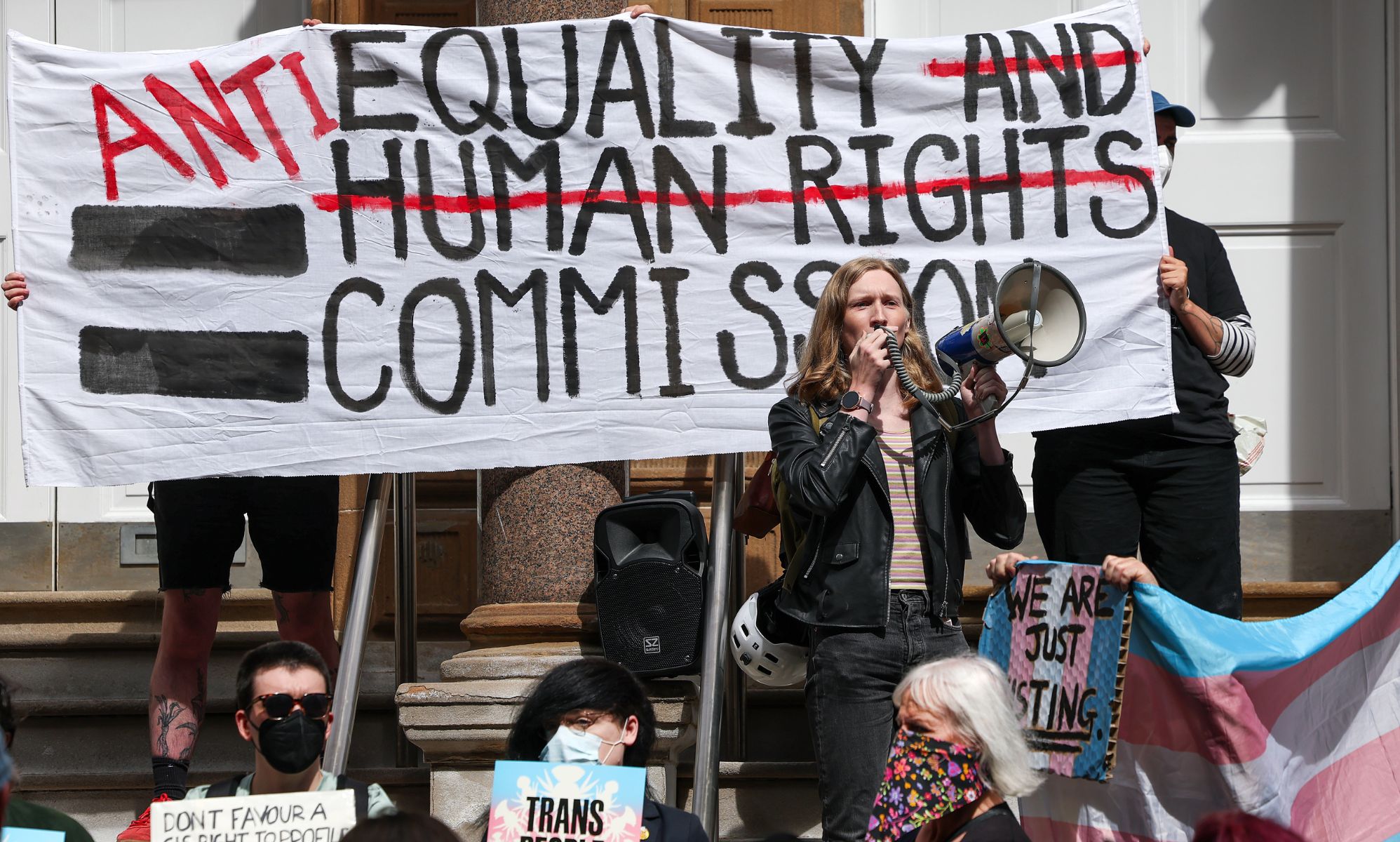By Amelia Hansford
Copyright thepinknews

The Equality and Human Rights Commission (EHRC) has insisted its ‘single-sex’ code of practice is “clear to those who rely on it” after hundreds of businesses claim it’s ‘unworkable’.
The UK human rights regulator, which has faced scrutiny over its policies on trans people, told PinkNews it is “confident” that updates to its code for services, public functions, and associations, are both “legally accurate” and “as clear as it is possible to be.”
A consultation on updating the code of practice launched in April shortly following the FWS v Scottish Ministers Supreme Court ruling, which determined that the 2010 Equality Act’s definition of ‘women’ refers to ‘biological women.’
Suggested changes included clauses that would effectively exclude trans people from using public facilities, such as toilets, consistent with their gender identity.
Just a month after closing its consultation, which saw over 50,000 public responses, the regulator handed a finalised draft, which is not publicly available, to equalities minister Bridget Phillipson. If approved, the code would likely become law.
EHRC chair comments cause concern over ‘unworkable’ trans code
Hours after announcing that the guidance had been submitted, EHRC chair Baroness Kishwer Falkner told BBC Radio 4’s Today that those expecting the EHRC not to follow its interpretation of the Supreme Court ruling would be “terribly disappointed.”
Asked whether she has particular concerns over its implementation, Baroness Falkner said: “It’s going to be difficult for duty bearers, service providers, to adapt a ruling which is quite black and white, into practical steps according to their own circumstances in their own organisation, which is why we’ve always emphasised that they should take their own advice, as well as adhering to our code.”
Her comments caused concern online, with some users suggesting she was saying the code would be “unworkable in practice.”
Asked to clarify what Baroness Falkner meant, a spokesperson for the EHRC said: “As Baroness Falkner stated during the interview, we know there has been demand for guidance since the Supreme Court’s judgement and some duty-bearers are uncertain about its implications.
“As Britain’s equality regulator, it’s our job to explain the Equality Act so that those with legal obligations can put the law into practice,” they continued. “Some organisations might have to adapt their current policies and practices to comply with the law.”
Pressed on how it is possible for duty-bearers to follow their own advice should the code become law, the spokesperson said the EHRC could not “give bespoke guidance for every organisation” while urging service providers to “take steps to ensure they are complying with the law in their specific circumstances.”
Hundreds of businesses say anti-trans laws will cause a ‘waste of resources’
It comes as hundreds of UK businesses have argued that a ban on trans people from gendered facilities would be “unworkable” both logistically and financially.
In an open letter penned by Trans+ Solidarity Alliance and Safe Space UK, over 650 organisations, including Ben & Jerry’s, Mighty Hoopla, and Lush Cosmetics, argued that an exclusionary law would create major “operational challenges” and could even see small businesses go bust.
The Old Nun’s Head, a London-based pub that signed the letter, said a legal obligation to “police toilet usage” would result in a “waste of resources” and likely take staff away from essential tasks associated with running the pub.
“[Approving the proposals] would mean we would need to hire additional staff, a cost which would be an unwelcome burden on our business,” the pub, which says it has “never had any issues with our loos,” said in a statement.
Several UK businesses have already begun to implement policies banning trans people from ‘single-sex’ facilities, with many citing legal pressures following the Supreme Court ruling.
However, Oscar Davies, the UK’s first out non-binary barrister and influencer, argued the ruling had been misinterpreted and did not necessarily call for the exclusion of trans people from public toilets or changing rooms.
“The Equality Act is meant to be a shield rather than a sword”
Speaking to PinkNews earlier this month, Davies said that, because the 2010 Equality Act’s provisions are “permissive rather than exclusionary,” neither the EHRC, nor any UK business, could use it to “discriminate” against trans people.
“If you have a single-sex space, my interpretation is that a trans person can still go into that single-sex space, but if someone complains, they can bring out a sex discrimination claim or the organisation can exclude that person, but that doesn’t happen automatically,” they said. “The Equality Act is meant to be a shield rather than a sword. It’s not meant to attack people and get rid of their rights.”
Legal analysis published in August argued that the ruling itself was based on an “incorrect undestanding” of equality law and had either missed or omitted key anti-discrimination laws in its conclusions.



